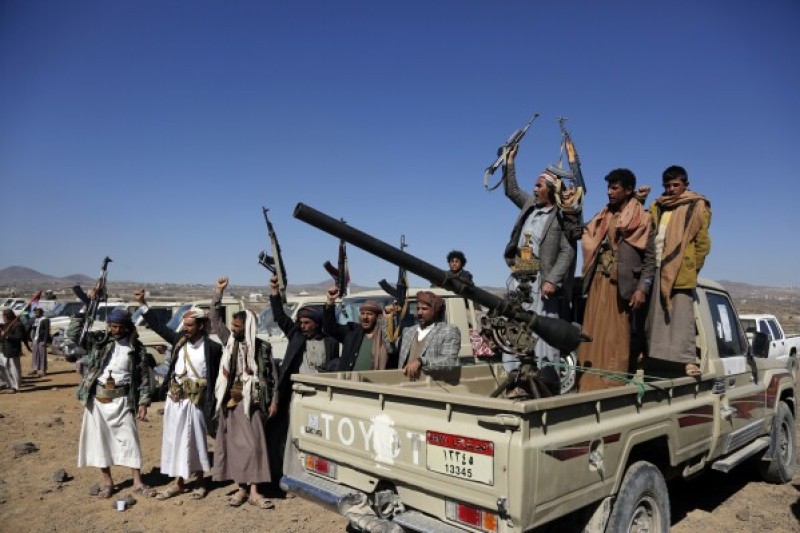Yemen's farmers forced to eat leaves as war devastates harvests


Khalid Abdullah, a 33-year-old resident of Yemen's Hajjah governorate, used to work on the farms he had inherited from his father.
He would plant tomatoes, onion, potatoes, corns, and other kinds of vegetables and grains, and never thought he would find himself unemployed and reliant on help from others.
But anything is possible when your country is enveloped in conflict, and the outbreak of Yemen's civil war in 2015 turned the lives of farmers in Abdullah's part of the world upside down.
Hajjah is a rural governorate, 127km from the capital Sanaa in Houthi-controlled territory.
Houthi rebels have been mired in a war with government forces, who have been backed since 2015 by a Saudi-led coalition.
"I used to provide for my family from farming, but in 2015 the prices of fuel more than doubled and I could not buy fuel for the water pump, so my lands became barren," Abdullah told Middle East Eye.
"I did my best to bring water by jerrycans to water the farms, but that did not help, and I lost my only source of income because of the expensive fuel."
The price of 20 litres of diesel increased from YR2,500 ($10) to more than YR12,000 ($48) in 2015, and although it has now decreased to YR7,500 ($30), the price remains unaffordable.
Abdullah used to send the harvest from his farms to different parts of the country, but now his area is in dire need of food.
"The harvest from my farms used to ship to several governorates, and I did not need anyone to help, but today everything has changed."
Food prices have jumped by 150 percent since the conflict began, leaving as many as 20 million Yemenis food insecure.
In the absence of the harvest, or help from the Houthi administration, international non-governmental organisations (INGOs) have stepped in to try to help the situation.
"We have been waiting for organisations to help us with some food that enables us to survive. Not only me, but most of the farmers face the same suffering," said Abdullah. “Organisations are now the main source of income and they help many people in Hajjah, but there is still a shortage of aid and not all needy people get food.
"Some families, including mine, usually resort to eating Halas leaves, so I call on INGOs to double their efforts in Hajjah."
Halas is a climbing plant, with shiny, leathery-looking leaves.
Yemenis used to eat the leaves in ancient times when famine spread in the country, and now some families in rural areas like Hajjah are again resorting to boiling the leaves to eat them.
AFP.

US Ambassador to Israel Mike Huckabee called for American airstrikes on Yemen after Israeli defenses shot down a missile fired by Houthi fighters t…

Aden - Israeli military officials have signaled preparations for a large-scale military operation in Yemen targeting the Iran-backed Houthi movemen…

Dr Anwar Gargash, Diplomatic Advisor to The President His Highness Sheikh Mohamed Bin Zayed Al Nahyan stated: "The Gulf states took a strong and im…